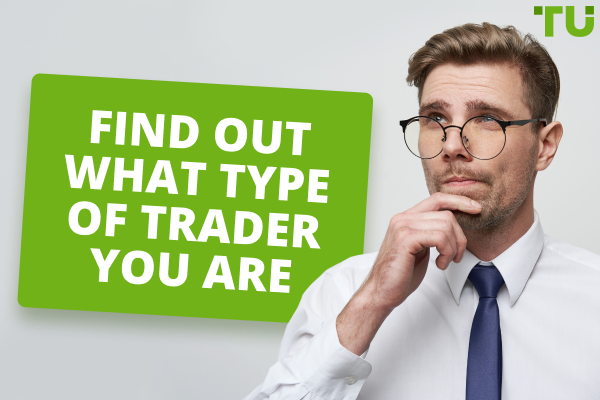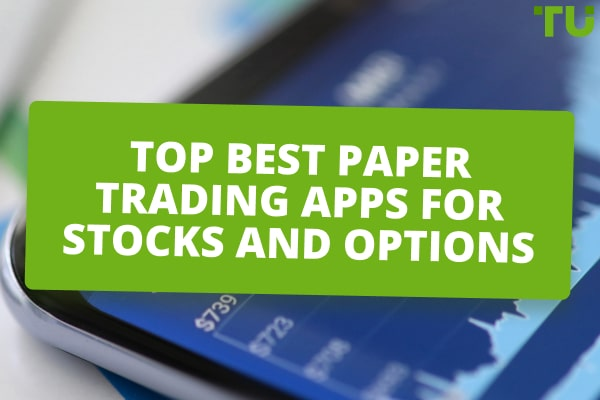How do I start to paper trade?
Paper trading can be a great way to start investing, especially if you're not yet comfortable with the risks involved. Using a paper trading platform, you can simulate buying and selling stocks, options, and other securities without putting any money on the line. This allows you to learn the essentials of investing and test your strategies without the added pressure of real financial stakes.
Start trading stocks or options now with eToro!How do I start trading papers?
If you're new to the world of investing, you may have heard of paper trading as a way to practice your skills and strategies without risking any real money. In this article, the experts at TU have gone over the best platforms for paper trading, whether or not you should use paper trading, and how to open a paper trading account.
What is the best way to paper trade?
Paper trading platforms are simulated trading environments that allow traders to practice and test their strategies without using real money. These platforms can benefit novice traders who are still learning the ropes and want to try out different approaches without risking their capital. Experts have identified the following platforms to be most relevant for someone looking to paper trade:
1. eToro
eToro is a paper trading platform that has been available since 2007. It is a good choice for beginner traders, as it offers a Paper Trading Account with all the necessary features and a comprehensive education section to help traders improve their skills. The Paper Trading Account is accessible through a browser or mobile app on iOS and Android, and it gives traders access to all the trading instruments available on eToro.
2. eOptions
eOptions is another paper trading platform that offers a sixty-day free trial and strong options trading capabilities. It comes with $100,000 in virtual capital for traders to experiment with, and non-clients can also access the platform. eOptions allows traders to conduct research, evaluate new strategies, monitor a virtual portfolio, and create a watch list. The only limitation is that the platform's options screener is not available on a paper trading account.
3. Interactive Brokers
Interactive Brokers is a paper trading platform that is particularly well-suited for traders interested in the Forex and international markets. It offers a thirty-day free trial and access to Forex, stocks, and options, as well as a wealth of educational materials and a glossary to help new traders understand trading terminology. In addition, users of the platform are given $1,000,000 in virtual capital to trade with.
4. TD Ameritrade
TD Ameritrade's paper trading platform, called "paperMoney," is intended for more advanced traders looking to test out new strategies. It offers $100,000 in virtual funds and access to a margin account, as well as the ability to trade various instruments, including U.S. stocks, options, mutual funds, Forex, and futures. The platform is free for TD Ameritrade's existing clients, and non-clients can access a sixty-day free trial.
Opening a paper trading account
Experts suggest following these steps when considering opening a paper trading account:
Research paper trading platforms: There are many different paper trading platforms available, so it's essential to do your research and choose one that meets your needs. Consider factors such as the range of assets offered, the ease of use, and any additional features or tools that may be useful.
Sign up for a paper trading account: Once you've chosen a paper trading platform, you'll need to sign up for an account. This typically involves providing some personal information and other additional details.
Fund your account: Many paper trading platforms allow you to "deposit" virtual funds into your account, which you can then use to simulate buying and selling assets. The amount of virtual money provided will vary depending on the platform you choose.
Start trading: With your account set up and funded, you can begin simulated trading using the platform's trading interface. You can buy and sell assets just as you would in a real brokerage account, but without using real money.
Monitor and analyze your trades: As you make trades, you must pay attention to how they perform and analyze the results. This can help you improve your trading strategies and better understand the market.
Should you use paper trading?
Paper trading can be a valuable tool for learning about the stock market, testing new investment strategies, and developing a trading plan. Based on the general opinion, there are several reasons why paper trading can be helpful for traders and investors:
It allows you to learn about the markets and how they work without risking any of your own money.
It can help you develop your trading skills and strategy, as you can try out different approaches and see how they would have performed in real market conditions.
It can be a good way to test new investment ideas and see how they would have performed over time.
It can help you manage your risk, as you can experiment with different positions and see how they would have affected your portfolio.
To use paper trading, you can sign up for a virtual trading platform to place simulated trades using virtual money. Some brokers and online financial platforms offer this service for free, while others charge a fee. Once you have signed up for a paper trading account, you can start buying and selling securities as you would in a real account, using virtual money to pay for your trades.
Remember that it is just a simulation, so the results you see may not be accurate or representative of what would have happened if you were using real money.
Keep track of your trades and performance, as this can help you identify any mistakes or areas for improvement.
Don't get too attached to your paper trades, as they are not real and do not have any actual financial impact.
Keep in mind that paper trading does not involve any of the emotional or psychological challenges that come with actual trading, so it may not fully prepare you for the real world.
Overall, paper trading can be a helpful tool for learning about the markets and developing your trading skills. Still, according to experts, it should not be relied upon as a sole source of information or as a replacement for real-world experience.
FAQs
Is paper trading worth it?
Paper trading will be useful for beginners in the world of trading, for professionals who want to test their trading strategy and for traders who want to evaluate the advantages of the chosen platform without investing their own money.
Where can I paper trade for free?
The best platforms with paper trading accounts:
-
eToro
-
eOptions
-
Interactive Brokers
-
TD Ameritrade
How do I set up a paper trading account?
To set up a paper trading account, you must find a brokerage or trading platform that offers this service. Many online brokers and trading platforms offer paper trading accounts for free or as part of a paid subscription. Once you have found a platform you would like to use, you will need to sign up for an account and follow the prompts to set up your paper trading account.
What tools do I need to paper trade?
You will need a computer or device with an internet connection and a brokerage or trading platform that offers paper trading to paper trade. You will also need to understand how to use the platform's trading interface and tools. In addition, some platforms may require you to install additional software or plugins, so be sure to follow the instructions provided by the platform.
How do I place a trade in a paper trading account?
To place a trade in a paper trading account, you will need to log in to your account and navigate to the trading interface. From there, you can enter the details of your trade, such as the stock or other security you wish to buy or sell, the quantity, and the price at which you want to execute the trade. Once you have entered the trade details, you can submit the trade for execution.
Can I use real money in a paper trading account?
No, paper trading accounts are not funded with real money. Instead, they use simulated or "virtual" money provided by the brokerage or trading platform. This allows you to practice trading without risking any of your own money.
Team that worked on the article
Oleg Tkachenko is an economic analyst and risk manager having more than 14 years of experience in working with systemically important banks, investment companies, and analytical platforms. He has been a Traders Union analyst since 2018. His primary specialties are analysis and prediction of price tendencies in the Forex, stock, commodity, and cryptocurrency markets, as well as the development of trading strategies and individual risk management systems. He also analyzes nonstandard investing markets and studies trading psychology.
Olga Shendetskaya has been a part of the Traders Union team as an author, editor and proofreader since 2017. Since 2020, Shendetskaya has been the assistant chief editor of the website of Traders Union, an international association of traders. She has over 10 years of experience of working with economic and financial texts. In the period of 2017-2020, Olga has worked as a journalist and editor of laftNews news agency, economic and financial news sections. At the moment, Olga is a part of the team of top industry experts involved in creation of educational articles in finance and investment, overseeing their writing and publication on the Traders Union website.













